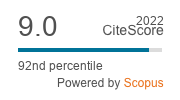The probiotic preparation Lacidofil® has been commercially available in Europe, Asia and North America since 1995. This product is a combination of two strains, Lactobacillus helveticus R0052 and Lactobacillus rhamnosus R0011. The strains have been evaluated for safety, identity and mechanisms of probiotic action in vitro, in animal models and human clinical trials. The strains adhered to human epithelial cells, helped to maintain the barrier function and blocked the adhesion of a number of pathogens, allowing them to be cleared from the intestine. The strains also elicited an anti-inflammatory response by down-regulating IL-1β, IL-8 and TNF-α. In various stress models, the probiotic combination facilitated better coping and outcomes which may be through the maintenance of barrier function and suppressing inflammation. Overall, pre-clinical studies suggest a potential anti-infectious role for the strains and the combination. Clinical studies, primarily in children, have identified Lacidofil as an effective supplement for various gastrointestinal diseases such as antibiotic-associated diarrhoea and acute gastroenteritis. Recent research has also indicated that Lacidofil may be beneficial for individuals with atopic dermatitis or vaginal dysbacteriosis.
A comprehensive post-market review of studies on a probiotic product containing Lactobacillus helveticus R0052 and Lactobacillus rhamnosus R0011
L. Foster Related information
1 Food Science and Human Nutrition Department, University of Florida, 359 FSHN Building, Newell Drive, Gainesville, FL 32611, USA
, T. Tompkins Related information2 Institut Rosell Inc., 6100 Royalmount, Montreal, QC H4P 2R2, Canada
, W. Dahl Related information1 Food Science and Human Nutrition Department, University of Florida, 359 FSHN Building, Newell Drive, Gainesville, FL 32611, USA
Beneficial Microbes: 2
(4)- Pages: 319 - 334

Published Online: December 06, 2011
Abstract
Keywords: clinical, antibiotic-associated diarrhoea, infection
2022 Journal Impact Factor
5.4
source: Journal Impact Factor 2023™ from Clarivate™

Institutional Offers
For institutional orders, please contact [email protected].
-
A.A. Hibberd, C.C. Yde, M.L. Ziegler, A.H. Honoré, M.T. Saarinen, S. Lahtinen, B. Stahl, H.M. Jensen and L.K. Stenman
-
E.E. Blaak, E.E. Canfora, S. Theis, G. Frost, A.K. Groen, G. Mithieux, A. Nauta, K. Scott, B. Stahl, J. van Harsselaar, R. van Tol, E.E. Vaughan and K. Verbeke
-
K. Venema, J. Verhoeven, C. Beckman and D. Keller
-
E. Arvidsson Nordström, C. Teixeira, C. Montelius, B. Jeppsson and N. Larsson
-
J.E. Haarhuis, A. Kardinaal and G.A.M. Kortman
-
E.E. Blaak, E.E. Canfora, S. Theis, G. Frost, A.K. Groen, G. Mithieux, A. Nauta, K. Scott, B. Stahl, J. van Harsselaar, R. van Tol, E.E. Vaughan and K. Verbeke
-
K. Lippert, L. Kedenko, L. Antonielli, I. Kedenko, C. Gemeier, M. Leitner, A. Kautzky-Willer, B. Paulweber and E. Hackl
-
K. Tsilingiri and M. Rescigno
-
M. Ozen and E.C. Dinleyici
-
Y. Kobayashi, T. Kuhara, M. Oki and J.-Z. Xiao



